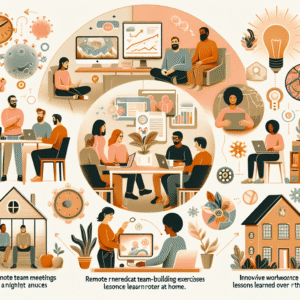How AI is Transforming Personal Finance in 2025

How AI is Transforming Personal Finance in 2025
As we move through 2025, artificial intelligence (AI) continues to emerge as a game-changer in the world of personal finance. From budgeting to investing, the integration of advanced algorithms and machine learning tools has revolutionized the way individuals manage their money. Here’s how AI is transforming personal finance for the better—and what this means for everyday consumers.
Smart, Personalized Financial Advice
Traditional financial guidance often required personal appointments or generic online calculators. However, AI-powered financial advisors or “robo-advisors” now provide tailored advice based on a user’s goals, income, spending habits, and risk appetite. Advanced AI systems analyze massive amounts of data in real time, adjusting recommendations as your financial situation evolves.
For instance, rather than suggesting a one-size-fits-all budget plan, AI-driven apps recommend dynamic spending limits and savings rates personalized to your unique circumstances. Some AI tools even anticipate upcoming expenses—like seasonal bills or life events—and adjust forecasts accordingly, helping users proactively plan.
Automated Savings and Investing
AI’s predictive capabilities empower consumers to save and invest more efficiently. Many savings apps now use machine learning to analyze your cash flow and automatically transfer an optimal amount into savings or investment accounts without impacting your daily expenses. This “set it and forget it” approach helps individuals save consistently—even those who struggle with discipline.
Furthermore, AI-driven investment platforms optimize portfolios by continuously monitoring market conditions and rebalancing users’ investments to align with their risk tolerance and long-term objectives. These intelligent algorithms often outperform traditional managed funds due to their speed and objectivity.
Enhanced Fraud Detection and Security
Increasingly sophisticated scams threaten personal finances more than ever. One of AI’s most critical roles in 2025 is bolstering security. By scanning millions of transactions instantly, AI can flag unauthorized activity as soon as it occurs. Whether it’s an unusual withdrawal or a suspicious international transaction, users receive instant notifications and automated guidance on securing their accounts.
Biometric authentication has also improved with AI, allowing financial apps to recognize users via facial recognition or voice analysis, historically weak points in security. This keeps accounts safe while enhancing convenience.
Smarter Credit Management
AI is changing the way creditworthiness is assessed. While traditional lenders relied on static credit scores, today’s AI tools analyze multiple data points, such as utility payments, rental history, and even spending behaviors, providing a more holistic picture of a person’s financial health. This opens doors for broader financial inclusion, especially for those who may lack a conventional credit history but demonstrate responsible financial behaviors.
Some AI apps proactively alert users to behaviors that may lower their credit scores—such as high credit utilization or missed payments—and offer action plans to mitigate the impact. Others automatically shop for better loan or refinancing options based on real-time market data.
Expense Tracking with AI Insights
Expense tracking has evolved far beyond spreadsheets. Modern personal finance tools powered by AI not only categorize expenses automatically—they also analyze spending patterns and flag unusual activity. In 2025, these platforms can predict upcoming cash shortages, suggest subscription cancellations, and even negotiate bills on your behalf.
These insights empower users to make informed decisions. For instance, if your weekly coffee shop visits increase unexpectedly, your app might recommend a monthly cap or suggest brewing at home more often to save money.
Financial Planning for Life Events
AI is helping users navigate complex life events, from buying a home to starting a family or planning for retirement. Many AI financial planning apps can simulate “what-if” scenarios to show how major purchases or career changes may affect your financial future. Their predictive modeling capabilities allow users to weigh different options and choose the most secure path forward.
Further, these tools can integrate with other platforms—like your calendar or email—to anticipate life changes and offer timely guidance, ensuring you’re always a step ahead financially.
The Rise of Conversational Finance
Chatbots and virtual assistants, powered by natural language processing, are now common fixtures in the finance space. In 2025, you can ask your AI assistant questions like, “Am I on track with my savings goals?” or “Can I afford a weekend getaway next month?” The AI delivers instant, context-aware responses, making financial management as easy as having a conversation.
The Road Ahead—Opportunities and Challenges
While AI-driven personal finance solutions offer unprecedented convenience, personalization, and security, they are not without challenges. Data privacy remains a concern, and not all users may feel comfortable giving apps access to their financial information. Additionally, AI systems must be monitored for bias or errors in predictions and recommendations.
Nevertheless, as AI technology advances, we can expect even more intuitive, accessible, and effective financial tools tailored to individual needs. The future of personal finance is bright—and increasingly, it’s powered by artificial intelligence.
Conclusion
AI’s impact on personal finance in 2025 is undeniable. From smarter savings and investment strategies to proactive fraud prevention and holistic financial planning, AI enables everyday users to take charge of their financial well-being like never before. Embracing these innovations can lead to greater financial literacy, security, and peace of mind for people from all walks of life.
* The post is written by AI and may contain inaccuracies.


